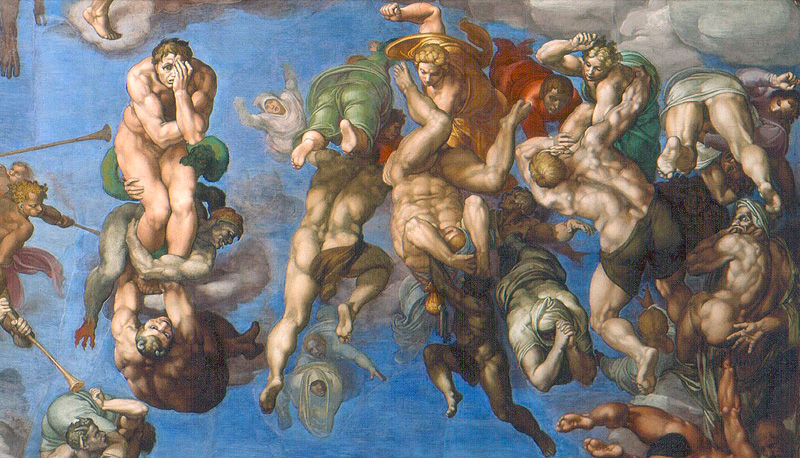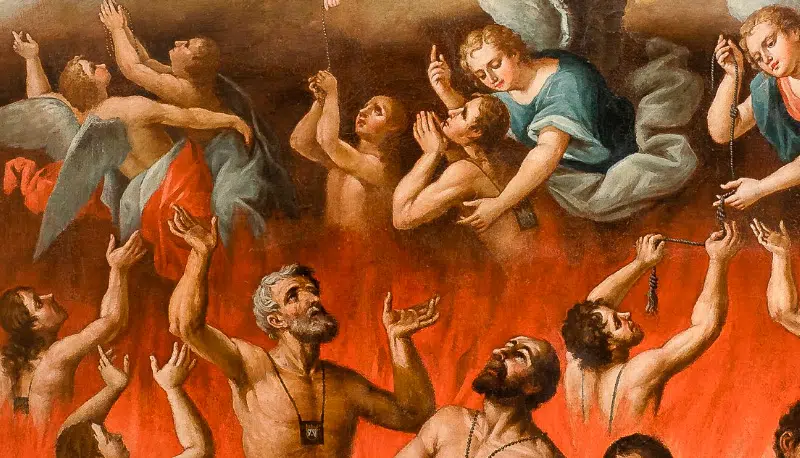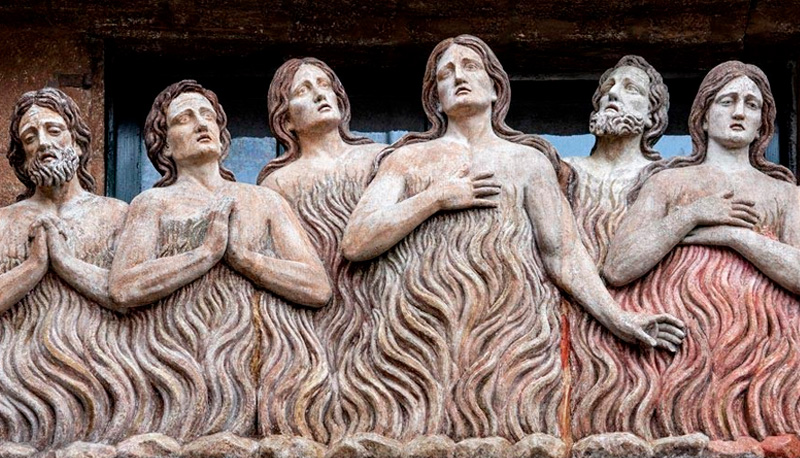
Those who die in the grace and friendship of God, but imperfectly purified, they undergo a purification after their death, in order to obtain the holiness necessary and enter into the joy of heaven. The Church calls this final purification of the elect "purgatory".The punishment of the damned is completely different from the punishment of the damned, although it is certain of their eternal salvation.
This teaching is also supported by the practice of the prayer for the deceased and eventual plenary indulgences. of which the Scripture already speaks: "Therefore he [Judas Maccabeus] commanded to make this atoning sacrifice for the dead, that they might be freed from sin". 2 M 12, 46
Pope Benedict XVI, in 2011, explained that purgatory is a temporary status that the person goes through after death while atoning for his sins. Purgatory is never eternal; the doctrine of the Church indicates that all souls gain access to Heaven.
"Purgatory is not an element of the bowels of the Earth, it is not an external fire, but an internal one. It is the fire that purifies souls on the path to full union with God," the Pope affirmed."
Pope Benedict XVI at the Wednesday public audience in 2011.

The etymological origin of the term purgatory comes from the Latin "purgatorium", which can be translated as "that purifies" and which derives, in turn, from the verb "purgare", equivalent to cleanse or purify. And although the word Purgatory does not appear literally in the Bible, its concept does appear.
St. Catherine spoke of Purgatory
On the same day, the Holy Father highlighted the figure of St. Catherine of Genoa (1447-1510), known for her vision of purgatory. The saint does not depart from the afterlife to recount the torments of purgatory and then indicate the path of the purification or conversion, but starts from the "inner experience of man on his way to eternity".
Benedict XVI added that the soul appears before God still bound to the desires and sorrow that derive from the sin and that this makes it impossible for him to enjoy the vision of God and that is the love of God by men who purify it of the dregs of sin.
In the sermon on the mount our Jesus shows the listener what awaits us after death as a consequence of his or her actions during life. It begins with the beatitudes. He warns the Pharisees that they will not enter the Kingdom of Heaven and finally mentions the words found in the Gospel of Matthew:
"Be at once on good terms with your adversary as you go with him by the way; lest your adversary deliver you to the judge, and the judge deliver you to the guard, and you be put in prison. I assure you: you will not get out of there until you have paid every penny." Matthew 5:25-26
St. Paul spoke of Purgatory
In his first letter to the Corinthians, St. Paul speaks about the personal judgment of those who have faith in Jesus Christ and his doctrine. They are people who have attained salvation, but they must go through the fire so that their works may be tested. Some works will be so good that they will receive immediate reward; on the other hand, others will "suffer harm" but will still "be saved". This is precisely what purgatory is, a purification that some will need in order to fully enjoy eternal friendship with God.:
"For no one can lay any foundation other than the one already laid, Jesus Christ. And if one builds on this foundation with gold, silver, precious stones, wood, hay, straw, each one's work will be uncovered; it will be revealed by the Day, which is to be revealed by fire. And the quality of every man's work shall be uncovered; it shall be made manifest by the Day, which shall be revealed by fire. And the quality of every man's work shall be tested by fire. He whose work, built on the foundation, endures, will receive the reward. But he whose work is burned shall suffer harm. He, however, shall be safe, but as one passing through the fire."
1 Corinthians 3:11-15

"Purgatory is a mercy of God, to cleanse the defects of those who wish to identify themselves with Him."
San José María Escriba de Balaguer, Surco, 889